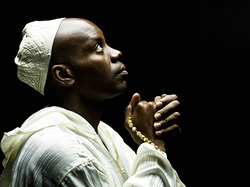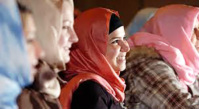
I have often been asked: ‘So you can’t even drink water or any other liquids?’ When my answer is in the negative, the questioner is usually stunned. Frankly, one cannot remain without food or drink for long durations under normal circumstances but once the concept of religion and spirituality sets in, it becomes not only feasible but also enjoyable and inspirational.
"O you who believe, Fasting is prescribed for you as it was prescribed for those before you so that you may achieve taqwa (righteousness and piety) – Quran 2:183
Muslims are not alone in fasting as fasting has been observed by many faiths, traditions and nations through the ages.
Fasting is very dear to God Almighty as He says:
"Every deed of the son of Adam is his except fasting; it is mine, and I am the one who gives the rewards for it. He abstains from his desires and his food for me." - Hadees Qudsi
Fasting has so many aspects that it becomes a fascinating form of worship. It has physical, physiological, spiritual, psychological, social and economic dimensions to it. Fasting is caring, sharing, sacrifice, patience, perseverance, submission and much more.

Spiritually, fasting brings you nearer to your Creator as you sacrifice many of your needs, wants and desires solely for His pleasure. Fasting strengthens your faith, empowers you to fight the devil, to resist your inner desires and attain righteousness and piety.
Fasting is a means of seeking forgiveness from one’s Creator as well as thanking Him for all His blessings that we often take for granted.
Sharing and Caring – Social Benefits
By abstaining from food and drink, one can feel first hand, what some unprivileged people in society are facing every day. One, therefore, develops mercy, kindness and compassion towards his or her fellow humans. This builds in the person attributes of sharing, caring and sacrifice that make our society beautiful.

In the matters of health, fasting carries tremendous benefits. Many people observe fasting solely as a religious obligation but only few know the health benefits it has. Fasting is a good practice, if properly implemented. It promotes elimination of toxins from the body as well as reduces blood sugar and fat stores. It promotes healthy eating habits and boosts immunity.
Here are some key health benefits you can derive from fasting:
- Fasting Promotes detoxification
- Fasting Rests Digestive System
- Fasting Resolves Inflammatory Response
- Fasting Reduces Blood Sugar
- Fasting Increases Fat breakdown
- Fasting Corrects high blood Pressure
- Fasting Promotes Weight loss
- Fasting Promotes Healthy diet
- Fasting Boosts Immunity
- Fasting May Help to Overcome Addictions

Ramadan is the ninth month of the lunar calendar. As the Islamic year is 10 -12 days shorter than the Gregorian one, Ramadan rotates from season to season. This is the second cycle since the fifties for Ramadan to appear in the hottest season.
The month of Ramadan is an enthralling and inspirational period around the Muslim world. Homes are buzzing with activity at dawn preparing for start of the fast. Mosques are filled to capacity at prayer times, in the evening and late into the night. This is especially true at ‘Iftar’ (the breaking of the fast) as well as during the ‘Traveeh’ prayer where Imams recite the Qur’an in enchanting voices, both major features of this month.

“Ramadan is the (month) in which was sent down the Quran as a guide to mankind, and a clear (sign) of guidance and judgment (between right and wrong)" – Quran (2:185)
The revelation of the Quran commenced in Ramadan and took over 23 years to complete. Ramadan and the Qur’an thus have an intimate connection. The very first verse to be revealed emphasizes ‘reading, recitation and learning’ – such is the core message of Islam. Recitations of the Quran echo in the month of Ramadan from homes, mosques, restaurants and market places all throughout the Muslim world.
Ramadan and The Night of Power
Chapter 97 of the Quran describes the mystical depth and significance of this very special night, thus:
1. Behold, from on high have We bestowed this [divine writ] on the Night of Power.
2. And what could make thee conceive what it is, that Night of Power?
3. The Night of Power is better than a thousand months:
4. in hosts descend in it the angels, bearing divine inspiration by their Sustainer’s leave;
5. from all [evil] that may happen does it make secure until the rise of dawn.

Bidding farewell to this month is often deeply emotional and highly spiritual. After 29 or 30 days, depending on the sighting of the moon, comes the Eid – the Feast! It is the reward for the faithful from their Lord, a celebration for the believers for having consistently fasted through the month. It is a religious, spiritual and cultural celebration that is thoroughly enjoyed and indulged in throughout the Muslim world and a most rightly deserved one too! A befitting end to the holiest of months!

 RSS Feed
RSS Feed
